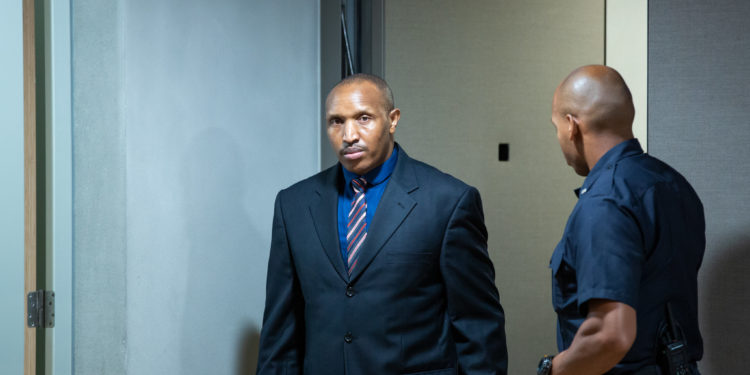By Susan Kendi
The International Criminal Court (ICC) will deliver sentencing in the Bosco Ntaganda case on November 7, 2019.
Ntaganda, better known as “The Terminator” is a former rebel commander and Deputy Chief of the general staff of the Patriotic Force for the Liberation of Congo (FPLC).
On July 8, a panel of three judges comprising of Judge Robert Fremr, serving as the Presiding Judge, Judge Chang-ho Chung and Judge Kuniko Ozaki unanimously found Ntaganda guilty of 13 counts of war crimes and five counts of crimes against humanity allegedly committed between 2002 and 2003 in Ituri region, Democratic Republic of Congo.
The charges include: Murder and attempted murder, intentionally attacking civilians, rape, sexual slavery, persecution, pillage, forcible transfer of population, ordering the displacement of the civilian population, conscription, enlistment and use to participate in active hostilities of children under the age of 15 years, attacking protected objects as a war crime and destroying the enemy’s property.
This is the first time that the ICC has convicted a commander for rape and sexual slavery offences against members of his own troops [Union of Congolese Patriots].
Background
The Democratic Republic of Congo referred the case to ICC and an investigation was opened in June 2004.
Two arrest warrants were issued against Ntaganda, August 22, 2006 and July 13, 2012 respectively.
He voluntarily surrendered himself to the United States Embassy and asked to be transferred to the ICC on March 22, 2013.
Before the trial phase began Ntaganda changed his defence team. His trial began on September 2015. The prosecution began presenting evidence on September 15 the same year.
The prosecution’s phase ran between September 2015 and February 2017 calling on 71 witnesses.
Many of these witnesses appeared before court briefly to testify and consent to their prior recorded testimony given in the trial of Thomas Lubanga which was then admitted into evidence in the Ntaganda trial.
Both Ntaganda and Thomas Lubanga were charged over crimes committed in eastern Democratic Republic of Congo during 2002 and 2003 while they led a militia group known as the Union of Congolese Patriots.
The Defence case opened in May 29, 2017 with the lawyers calling 19 witnesses. Four defence witnesses testified orally, eight testified via video link and the testimonies of the other seven defense witnesses was admitted as evidence.
Ntaganda took the stand in his own defence on June 14, 2017, testifying as the second defence witness. He made an unsworn statement during the closing statements held in August 2018.
There has been 248 hearings, the Court has heard 71 prosecution witnesses and experts, 19 defence witnesses and 2,123 victims.
The court has issued 257 oral decisions, and 347 written decisions.







